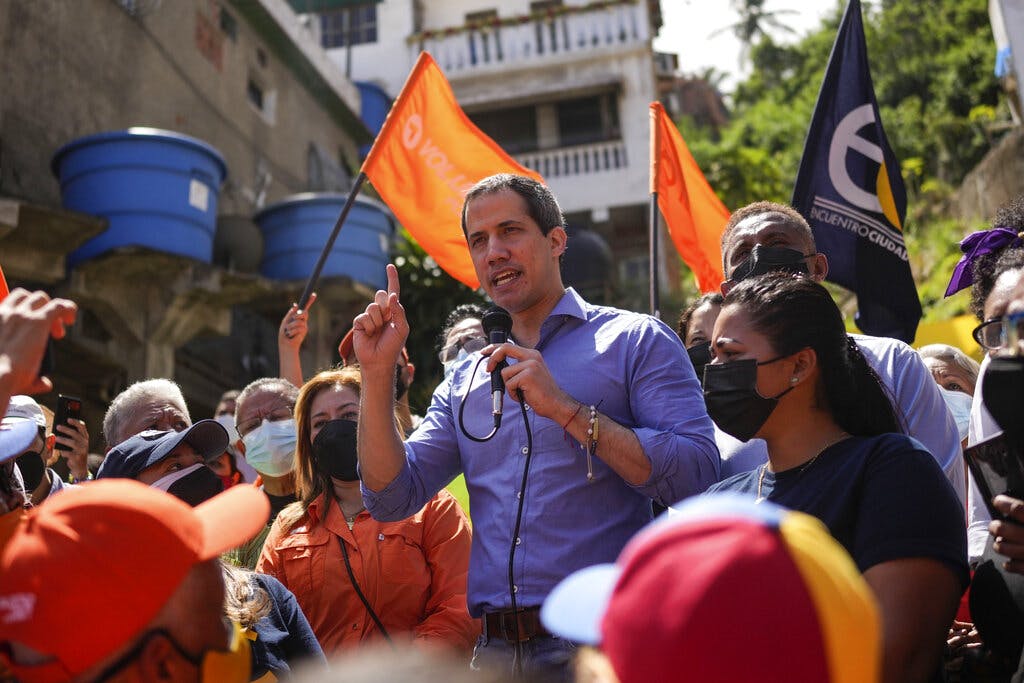Washington’s Man in Caracas Reaches the End of His Rope
Analysts believe that if Guaido is removed as head of his party, America will have no other choice than to restore relations with President Maduro.

Venezuela’s opposition leader, Juan Guaido, is at the end of his rope, leaving Washington with no alternative in its bid to find a suitable alternative to the country’s dictator, Nicolas Maduro.
Mr. Guaido’s colleagues in the opposition’s legislative caucus voted to end his interim government last week. A second session, likely to confirm the vote, is scheduled for Thursday.
Mr. Guaido became the head of Venezuela’s opposition in 2019, soon after he declared himself the interim president of Venezuela. America quickly backed him, and to this day Washington recognizes Mr. Guaido as Venezuela’s interim president, even as his domestic and international failures mount.
In a Zoom session last Thursday, Mr. Guaido’s opposition colleagues voted against him by a vote of 72 to 23, with nine abstentions. Once the vote is confirmed, the opposition will choose five new members of its board of directors, and Mr. Guaido and his government-in-waiting will be removed.
The three opposition parties that voted against Mr. Guaido said in a joint statement that after four years his political standing has weakened, and that they expected no “real option for political change.”
Under Mr. Guaido, the opposition “has not achieved its expected objectives and the country demands new paths that would lead us toward democracy,” the statement said.
Mr. Guaido attempted to take office in 2019 after the National Assembly declared the 2018 presidential election illegitimate and refused to recognize Mr. Maduro’s second presidential term. Shortly after, Mr. Guaido announced that under Article 233 of Venezuela’s constitution he would assume the role of interim president until free elections could be held.
Sixty of the world’s democracies, led by President Trump, quickly recognized Mr. Guaido as president, but their support was short-lived.
This year, Mr. Maduro agreed to return to negotiations with opposition leaders at Mexico City. As talks started, Mr. Guaido rejected proposed conditions for a presidential election in 2023.
Meanwhile, as Mr. Guaido further failed in his attempts to take Mr. Maduro’s dictatorship down, his own party’s support eroded, a Venezuelan political analyst, Pablo Quintero, told the Sun.
Mr. Guaido’s government was “fictitious,” and he failed to achieve “tangible results,” Mr. Quintero said. “He lost the support of the population and his ability to govern.”
At the same time, Mr. Maduro appears to be gaining international diplomatic support. Once an international persona non grata, the Venezuelan dictator last month attended a United Nations climate summit in Egypt, where he was photographed alongside the likes of the French president, Emmanuel Macron, and the American climate envoy, John Kerry.
In Latin America, a region now dominated by left-leaning leaders, Mr. Maduro gained new allies as well. Last week, Brazil’s foreign minister, Mauro Viera, announced that on Sunday, when the new president is scheduled to be inaugurated, Brasilia will resume diplomatic relations with Caracas.
Earlier this year, Colombia’s Gustavo Petro re-established diplomatic and trade relations with Mr. Maduro. In the past two years, Bolivia’s Luis Arce and Peru’s Pedro Castillo have also resumed relations with Venezuela.
If Mr. Guaido is removed as head of his party, America will have no other choice than to restore relations with Mr. Maduro, Mr. Quintero said. Last month, President Biden began lifting Venezuelan sanctions by authorizing Chevron Corporation to renew oil drilling in Venezuela.
Despite political disagreements, the Chevron deal is something that benefits both countries, Mr. Quintero said. “It doesn’t bring a short-term benefit for Venezuela, Mr. Quintero said. Yet, “it is the minimum” required by the American government to “restore trust” in the regime and “evaluate progress,” which could eventually lead to further easing of relations.
“America has more intentions to seal this deal than Venezuela because of its energy crisis,” Mr. Quintero said. “The economical aspect will be prioritized over any political disagreements.”
Since 2014, nearly seven million Venezuelans have fled the country and requested asylum in neighboring countries amid the economic downfall under Mr. Maduro’s presidency.

